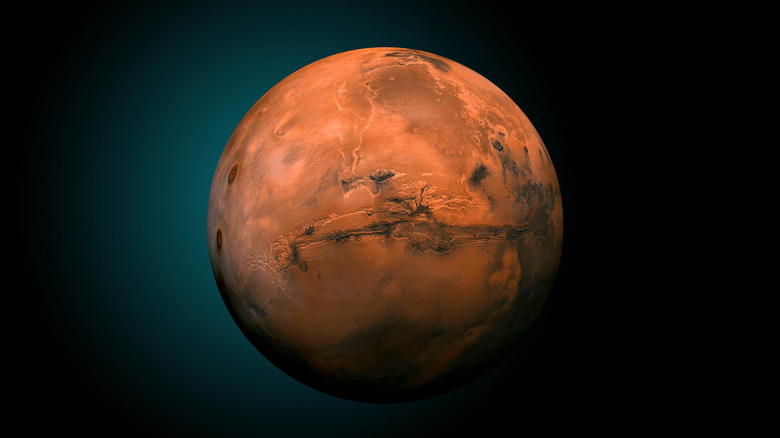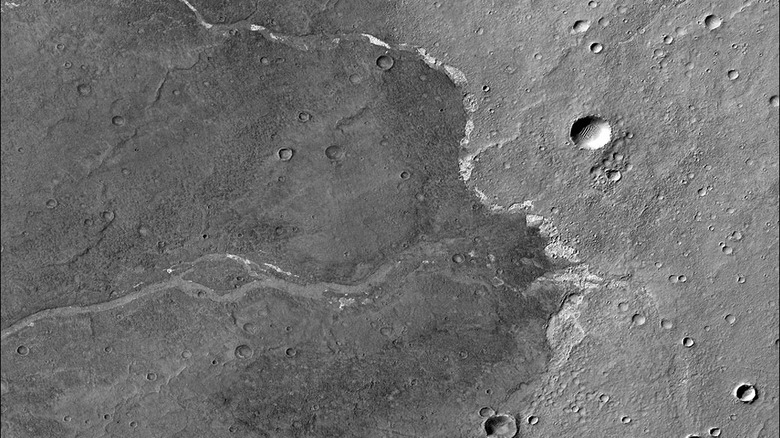The Complicated History Of Water On Mars And Why It Matters In The Search For Life
If you were to visit Mars today, you'd find a barren desert with virtually no water on the surface and almost certainly nothing alive there. But millions of years ago, Mars looked very different, with rivers and lakes on its surface — and it could even have hosted microbial life (via NASA). Scientists are studying Mars today to try to learn how much water it had on its surface and for how long, as understanding this is key to knowing whether the planet could once have been a hospitable place for life to emerge. It was originally thought that there was water on Mars up to around 3 billion years ago, but recent evidence from the NASA Mars Reconnaissance Orbiter (MRO) has challenged this. According to NASA, MRO data suggests that water might have been around on Mars as recently as 2 billion years ago.
MRO is an orbiting spacecraft that takes images of the surface of Mars using tools like the Context Camera and the High-Resolution Imaging Science Experiment (HiRISE) color camera, and also collects spectroscopy data using its Compact Reconnaissance Imaging Spectrometer for Mars (CRISM). The CRISM instrument was used to map out areas on Mars where chloride salts were present. These salts are formed in water and are left behind when water sources evaporate.
"What is amazing is that after more than a decade of providing high-resolution image, stereo, and infrared data, MRO has driven new discoveries about the nature and timing of these river-connected ancient salt ponds," said lead author of the research, Bethany Ehlmann, to NASA,
The importance of water for life
Here on Earth, practically every lifeform we know of is dependent on water, and it's a good bet that if there were life on other planets, it would require water, too. There are several reasons for that, as explained by Harvard University, including that water is extremely good at acting as a solvent, making it helpful for transporting molecules in a way that is beneficial for life. It is also important in the structure of cells and is chemically reactive with many different things, which means it is useful for extracting nutrients.
It is possible that life on other planets could exist in a way that is completely different from life as we know it, but in that case, we'd have no way to detect it. So for pragmatic reasons, astrobiologists searching for life beyond Earth typically consider the presence of water to be a key factor in finding environments that could support life.
Finding evidence of water being present on Mars ups the odds that life could have developed there, according to Alberto Fairen, an astrobiologist at the Center of Astrobiology in Spain (via NASA). "On Earth, water means life," Fairen said. "The surface of Mars today is extremely dry, but there are lots of clues pointing to a much wetter past. Evidence for past water may be the clue to follow to find extinct life on Mars and if some of that water still persists on Mars today, then for sure the prospects to find extant life go up."

